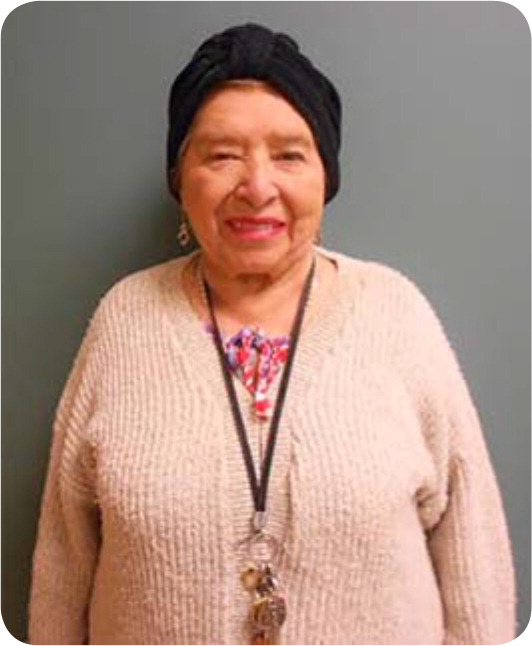
Am Fam Physician. 2019;100(7):438
Living on my own continues to be very important to me, even though I'm getting older and am sometimes forgetful. I manage pretty well with the help of my son, who visits me weekly, and my family doctor, who I see monthly for my hypertension, stomach reflux problems, prediabetes, and high cholesterol. I try to manage my forgetfulness with the help of a pill box so that I remember to take my medications. A monthly calendar posted on my refrigerator reminds me of upcoming medical appointments. During a recent home visit from my family doctor and her clinic team, they made suggestions for ways to maintain my independence. My doctor asked to see everything that I was taking for my health. She looked worried when I showed her iron pills that I had bought from a saleswoman who came to my apartment on a monthly basis. The woman had said that they were extra strength and would make me healthier. My doctor became even more concerned when I told her I was paying 10 times the cost of the iron pills that my doctor was already prescribing me from the pharmacy. She explained that I did not need these extra iron pills and that if I ever did need more, she could prescribe them and they would cost a lot less than what I was paying the saleswoman. This was a big relief to me because as a senior I live on a fairly tight budget.
I learned that I need to be more cautious of people who try to sell me something door to door. My doctor also advised me to be wary of calls from anyone asking for my social security and bank account numbers. She told me that there are people who try to commit elder scams, which I'd never heard of before. I thought that the people who come to sell vitamins and who call and offer deals to people like me are trying to help us older adults be healthier and live more comfortably. I am glad I now know this isn't always true and will try to be more careful. I also agreed to let my doctor speak to my son about the medications I'm taking, and she always welcomes him to come with me on my medical visits.—M.A.

Commentary
Older adults face many challenges as they age, including deteriorating physical health, economic strain, and cognitive decline. Seniors are also at increased risk for elder abuse, which includes financial scams targeting the elderly. It is important to be aware that 90% of elder abuse scams are perpetrated by their family members.1 Low-income seniors, like M.A., are included in the elderly at risk for financial scams. Clinicians can educate patients and their caregivers about elder abuse, being mindful of the impact of cognitive decline on seniors' decision-making and warning them of the risk for exploitation of the elderly. This includes targeted financial scams that take advantage of their cognitive vulnerabilities. Other risks include counterfeit prescriptions, Medicare and health insurance scams, requests for personal information such as social security numbers, telemarketing and lottery scams, identity fraud, and many others.1 M.A.'s story underscores the importance of older adult home safety visits and regular senior cognitive decline assessments. Elder abuse education helps empower older adults and their families so they are less vulnerable to becoming victims.
Resources
For Patients
AARP Fraud Watch Network: https://www.aarp.org/money/ scams-fraud/?intcmp=GLBNAV-SL-MON-CONP
Adult Protective Services (check local sites)
Eldercare Locator: https://Eldercare.acl.gov
National Center on Elder Abuse: https://eldermistreatment.usc.edu/national-center-on-elder-abuse-ncea-usc/
National Council on Aging: https://www.NCOA.org
For Physicians
American Geriatrics Society: https://www.americangeriatrics.org
Centers for Disease Control and Prevention. Elder Abuse: Definitions: https://www.cdc.gov/violenceprevention/elderabuse/definitions.html
